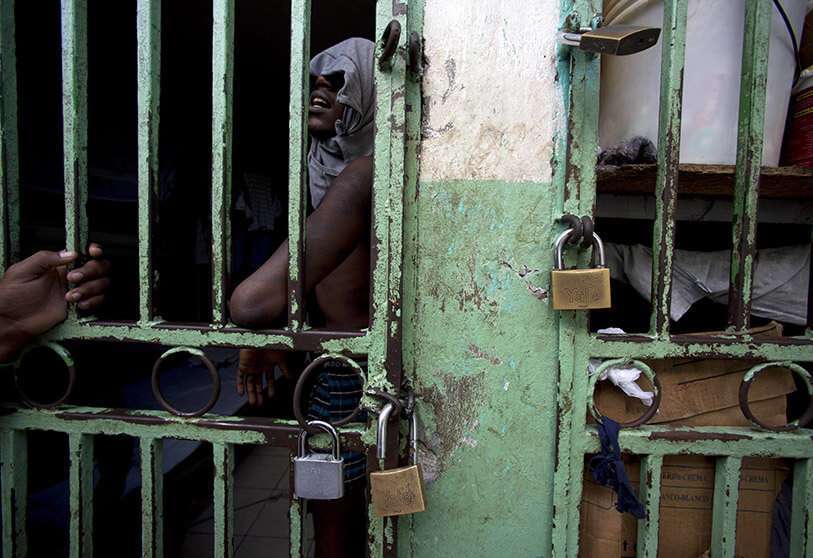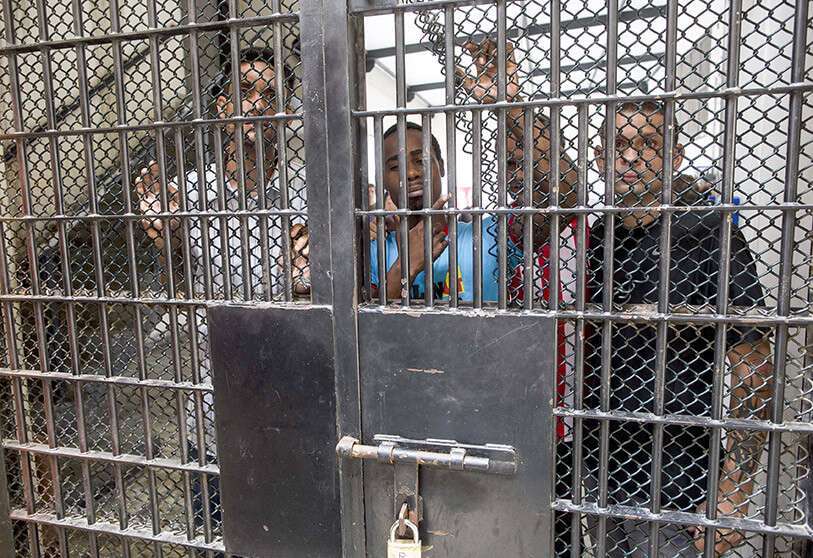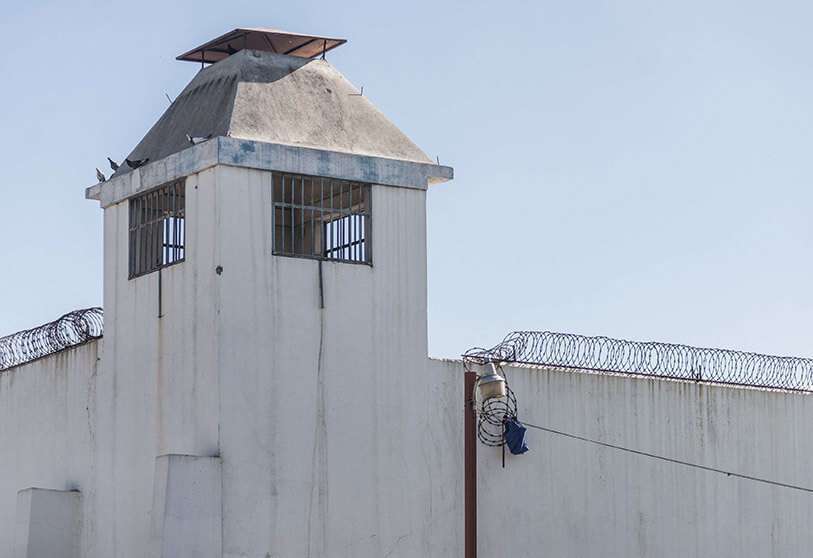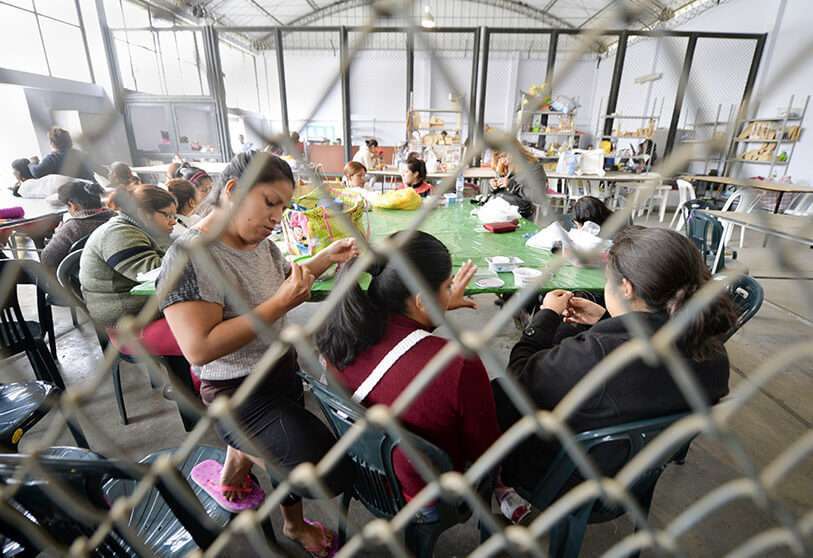Prison overcrowding, a growing problem in Latin America

On 28 September, Ecuador experienced its third prison riot so far this year, at the Penitenciaría del Litoral in the city of Guayaquil. The event resulted in the death of 119 prisoners, making it the worst prison riot in the history of the Andean country, highlighting the serious prison crisis that the nation is going through.
This situation is repeated in Latin American prisons, where deadly clashes spread among prisoners, due to conditions such as overcrowding, precariousness and neglect by the authorities, characteristics that make prison systems the most aggressive in the world.
The Guayaquil prison massacre has once again brought the situation and conditions of Latin American prisons to the centre of controversy, specifically the situation of overcrowding and collapse within them.

The Institute for Crime and Justice Policy Research (ICPR) in the United Kingdom, together with the World Prison Brief (WPB), the world's leading database on prison issues, has drawn up a ranking of prison occupancy levels, which places Ecuador in 18th place.
Prison overcrowding in Ecuador is a critical problem, with Ecuador's 52 prisons holding more than 39,000 inmates, according to official prison capacity figures, well above capacity. Experts point to Ecuador's prison occupancy rate of 133% as one of the factors behind the tragedies in the country's prisons this year.
Despite these alarming figures, Ecuador is not even among the 10 Latin American and Caribbean countries with the most overcrowded prisons. Five nations have three or four times as many prisoners as their prisons admit.

The worst data are those collected by the Haitian prison system, whose prison occupancy rate reaches 454.4%, affecting the control of prisons and leading to an increase in violence and poor prison conditions.
The main cause of this situation of overcrowding is due to the pre-trial detention system, where 81.9% of prisoners are detained without trial and sometimes never have a verdict, according to data from World Prison Brief.
The massive congregation of prisoners exacerbates a penitentiary crisis to which must be added the lack of preparation of prison officials, which makes escape attempts commonplace in prisons, where the lack of state authority is a reality.

The Central American nation tripled the capacity of its prisons, which are currently at 367.2 per cent of maximum occupancy.
According to data from the General Directorate of the Penitentiary System (DGSP), as of 13 September 2021, 12,077 people are in pre-trial detention and 12,865 have received a final sentence, which translates into a total of 24,942 prisoners in a collapsed penitentiary system.

Statistics from the Penitentiary System (SP) show a problem of overcrowding in Guatemalan prisons, which continues to increase in prisons such as Mariscal Zavala, where the capacity of 135 inmates has already been exceeded to 262.
According to El Periódico, the Guatemalan prisons with the largest number of inmates are Granja Penal Pavón, Granja Canadá, Preventivo de la zona 18, Granja Cantel, Puerto Barrios and Pavoncito.
The country reports that the capacity of its prisons is 269.9%, well above their design. Faced with this situation, the government has proposed different processes to decongest its penitentiary system.
In February 2021, a presidential decree approved by the Plurinational Legislative Assembly of Bolivia granted a pardon on humanitarian grounds to thousands of people who were in prison during the government of Jeanine Añez and freed those who were in wrongful imprisonment.

The aim is to benefit a total of 3,180 prisoners, 2,781 men and 399 women in the country's different prisons. According to the Ministry of Justice and Institutional Transparency, the main populations are pregnant women, the elderly, parents of children under 12 years of age or with disabilities, politically persecuted and victims of delays in the administration of justice.
In fourth place and with a population of 112,003 people, Grenada, one of the least populated countries, is one of the Latin American nations with a collapsed prison system. Its prisons are at 233.08% of capacity, more than twice as high as they allow.

It is in fifth place in this ranking, with 223.6% prison overcrowding, a problem that has persisted over the years.
In February 2020, according to information from the National Penitentiary Institute (INPE), about 48% of the prisoners had no sentence, i.e. about half of the prisoners are held awaiting sentencing.
An example of the overcrowding of Peruvian prisons is the Jaen prison, whose capacity of 50 inmates was exceeded a year ago by 540%, reaching a total of 320 inmates, according to data provided by the INPE.

According to the World Prison Brief ranking, in South America, Suriname is the only country whose prisons are not overcrowded, with an occupancy rate of 75.2%. It is followed in second place by Chile, with 100.4% of its capacity. Meanwhile, in Central America, only Belize remains at 49.8%, followed by Mexico with a rate of 101.8%.
These data show that the majority of Latin American nations have a prison system in crisis which, according to the Institute for Crime and Justice Policy Research (ICPR), reaches an average occupancy rate of 160% in the region, with countries that multiply the capacity of their prisons by three and four times.
César Muñoz, senior researcher in the Latin America department of Human Rights Watch (HRW), says the main problem of overcrowding is "the criminal justice system, not the prison system, which does not decide who is there". He also points to the slowness of judicial processes in most countries in the region and their "excessive use of pre-trial detention".

The figures provided by World Prison Brief on how many prisoners are detained without trial are alarming: in Paraguay it is 71.7% and in Bolivia 65%. On average, more than 40% of prisoners in South America are held without conviction. In Central America, the average figure is 35%.
One of the main reasons for being in prison today is the sale of drugs," says Sacha Darke, Associate Professor of Criminology at the University of Westminster in the UK, who specialises in prison systems in Latin America. But most of those imprisoned are not drug traffickers, but "young people who act as intermediaries between those who sell and those who buy," Darke points out.

The hegemony and power among criminal groups is also manifested in the control of prisons, where they impose their superiority through riots and assassinations. A large part of this situation, according to experts, is due to overcrowding in prisons. "Prison overcrowding favours the growth of criminal networks because there is less control by the state," says César Muñoz.
The number of people deprived of liberty in the world has been increasing, placing a financial burden on the government and affecting the social cohesion of society, according to a strategy manual to reduce prison overcrowding developed by the United Nations Office on Drugs and Crime (UNODC) with the cooperation of the International Committee of the Red Cross (ICRC).

The document shows that the excessive use of pre-trial detention can be costly for the country because it includes prison facilities, investigation costs and court proceedings. The organisation suggests as a possible solution encouraging courts to adopt alternative measures to imprisonment instead of short-term imprisonment, thus promoting the use of non-custodial sanctions.









